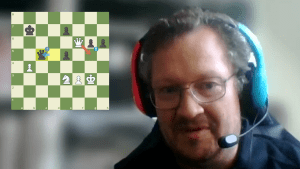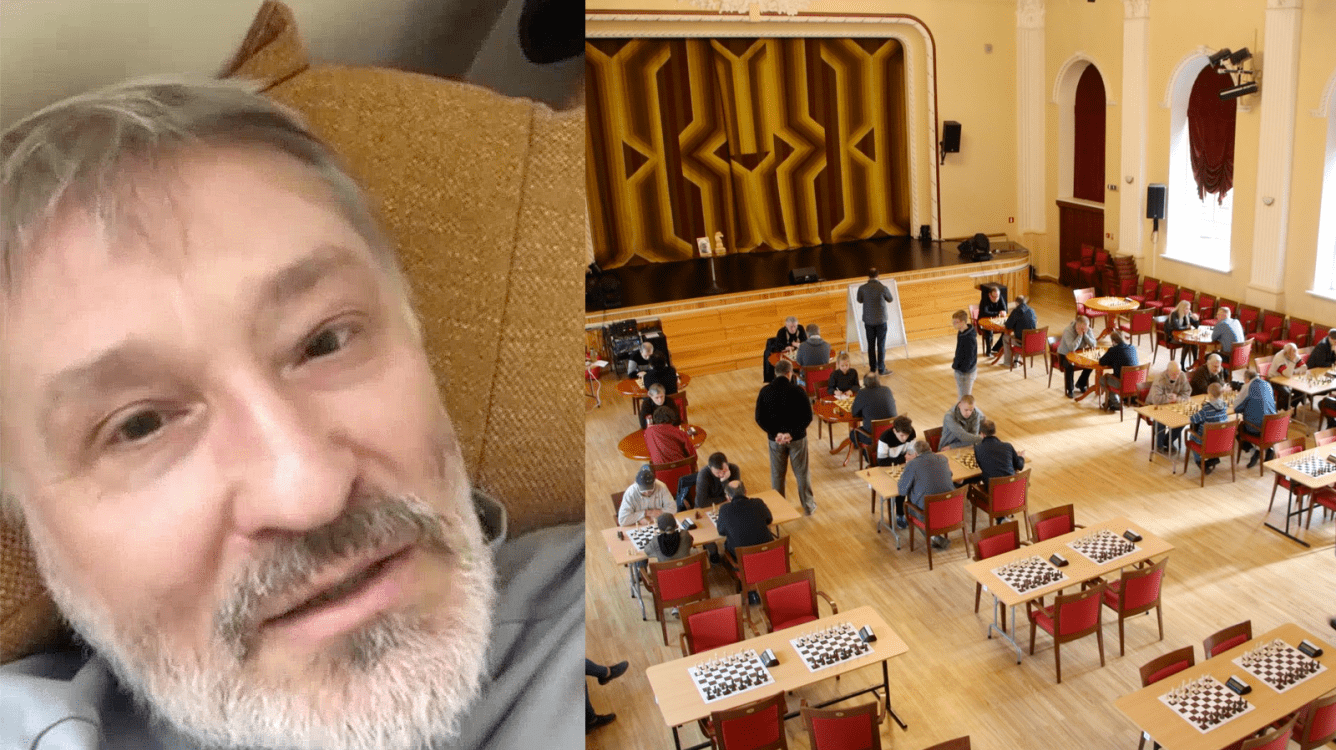
From Igors Rausis To Isa Kasimi: Interview With A Chess Cheater
The news that the player formerly known as Igors Rausis returned to the chess arena under a new name has shocked the chess world. Chess.com spoke to the former grandmaster, who now uses the name Isa Kasimi, in an attempt to understand more of the character of a chess cheater.
Rausis was born in 1961 in Komunarsk, a small town in the Lugansk province in eastern Ukraine. He got interested in chess quite late; he was 14 when he started playing correspondence chess before he turned to normal chess. While at school in Sevastopol (Crimea, Ukraine), he started playing more seriously.
Rausis got a medical education and was schooled as a neurologist. He worked in the emergency unit in Sevastopol and was a crew member of an ambulance. "Actually it was not difficult work; you had two, three calls per day," he says. "You sit and play chess with the driver."
Although he had become a more serious chess player at this point, soon, his interest switched to coaching. He worked as a chess teacher in the Simferopol Pioneer's Palace during his medical education and moved to Latvia in 1984, where he started coaching the national youth team in Riga. Among his pupils was GM Alexei Shirov.
He then finished the Higher School of Trainers in Moscow in 1988. Around that time, at the age of 27, he got his first FIDE rating and in 1991, Rausis became a grandmaster himself. He would represent Latvia in three Olympiads ( (1996, 1998, and 2002).
Rausis worked as a coach in many different countries. He spent the years 2003-2007 in Bangladesh and also represented that country as a player in those years. Since 2007, he plays for the Czech Republic. In 2018 he obtained the FIDE Trainer title.
So far, so good. Or not?
Well, there was something else. Between 2013 and 2019, the Latvian-Czech grandmaster had raised suspicions after he had increased his 2500-rating to almost 2700 in a period of six years, while in his fifties. How was that possible?
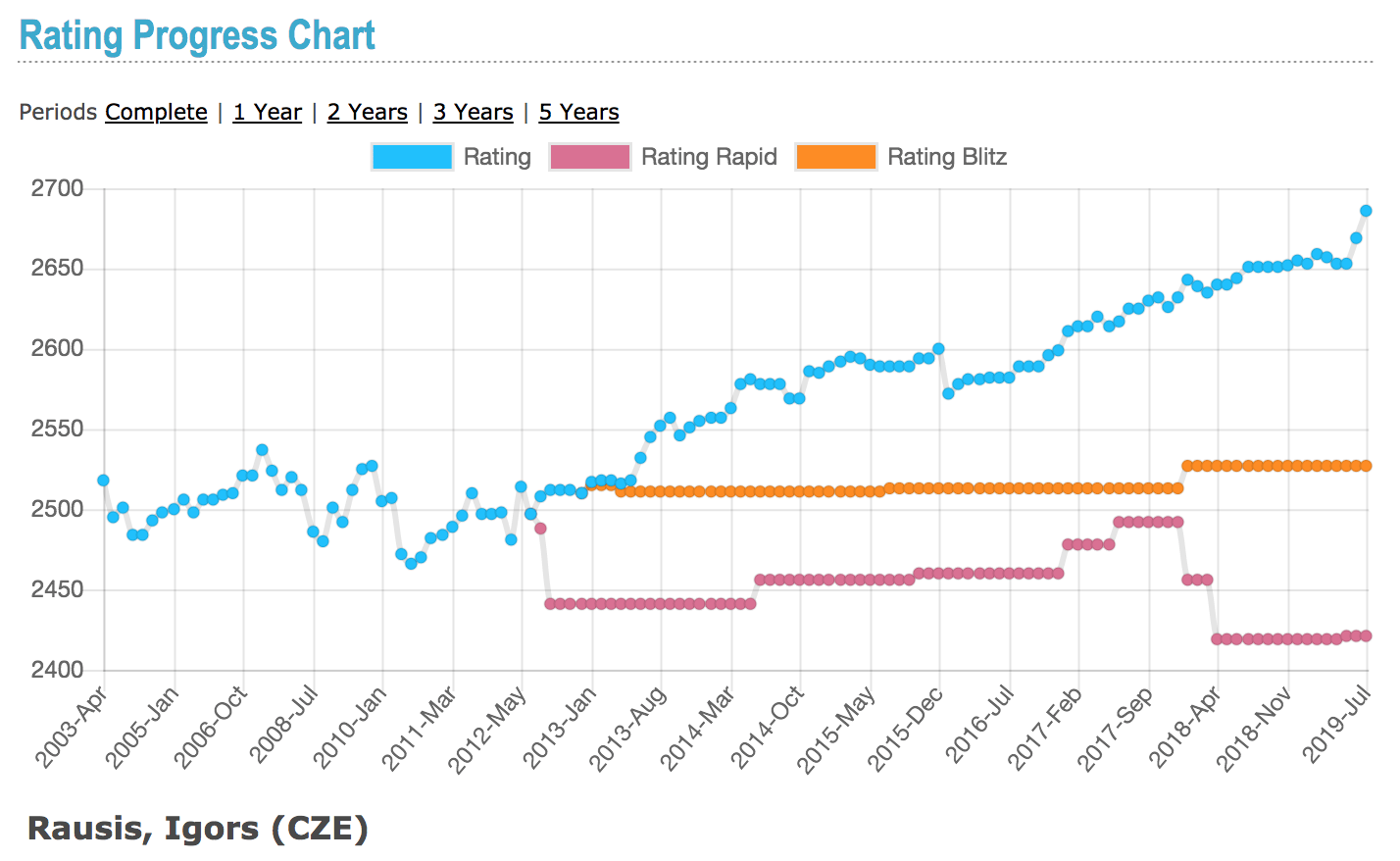
It was in July 2019 that the situation completely escalated. Rausis came under official investigation for cheating after he was caught with his phone during a game at the Strasbourg Open, held July 10-14 in Strasbourg, France. A phone was found in a toilet that had just been used by Rausis, who then signed a declaration that the phone was his. The infamous photo that soon appeared on the internet was the final blow.
In December 2019, the FIDE Ethics Commission banned Rausis for six years from official FIDE tournaments and removed his grandmaster title.
Little was heard from Rausis until he suddenly appeared in the Valka tournament last Saturday. GM Arturs Neiksans discovered his participation, under a different name, only after the second round, and started protesting, after which Rausis left the tournament.
The story was discussed heavily on social media. There seem to be two camps: one consisting of chess fans who feel that he wasn't punished enough, and the other consisting of fans that point to the fact that by playing on Saturday, he didn't do anything wrong legally.
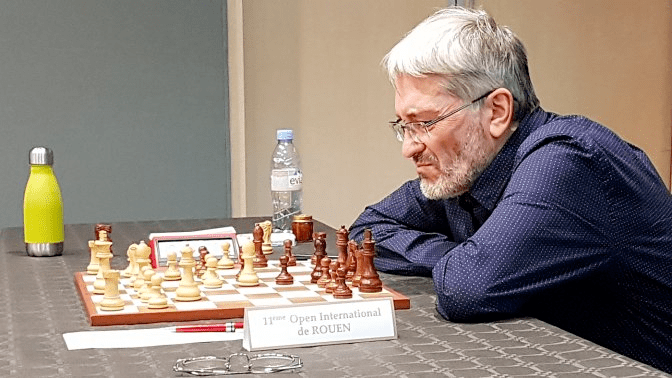
Chess.com spoke with Kasimi, as we'll call him from now on, on Sunday afternoon via Skype. The first question: what happened exactly on Saturday?
"Shortly before the third round, Arturs came to our board and spoke a few words to my opponent," says Kasimi. "My opponent stood up and both of them approached the arbiter. Then, Neiksans announced loudly that I am using a foreign name so I am a cheater and I'm banned to play in all competitions. All three points were wrong. First of all, half of the playing hall knew me. You can change your name, but you cannot hide your face. I've lived here since the 1980s."
Half of the playing hall knew me. You can change your name, but you cannot hide your face.
According to Neiksans, you were using your face mask to hide your identity? "Then he must be living on the moon. Latvia is a small country and I already played as Isa Kasimi. Besides, I have a semi-medical education and I know the importance of a face mask. It's not to hide myself."
Kasimi showed his passport during our interview, which was published earlier this year. The two tournaments he had played before under the new name were a Fischer Random tournament and a "dice chess" tournament; the one in Valka this weekend was his first chess tournament since he was banned.
Kasimi suggested that Neiksans' protest was of a more personal nature: "Everybody knows my face and greets me, except Arturs of course. But I understand him. Being a grandmaster, he might be feeling unpleasant to greet me as a cheater. Many players said they would never shake hands with me anymore.
"Half of the tournament hall was aware that I was playing, but actually, I wasn't sure if Neiksans was aware. Otherwise, he wouldn't speak so harshly. But I could hardly imagine he could be afraid of me. My playing strength is far below the level I used to play at."
The tournament was rapid and not FIDE rated, because the organizer was too late to register it at FIDE. According to Neiksans, this was a "loophole" used by Kasimi to play again, but he disagrees.
"I was quite sure it was not FIDE rated. It is quite far from Riga… I asked the federation, the rating commissioner of our federation and I called the organizer, so I triple checked."
So, if he is not hiding his identity, why didn't he play under the name Rausis? "Because the name Rausis is completely shamed. First of all, I feel sorry for my entire family. Even my daughter was ashamed of this story. This toilet photo, you cannot imagine, it was published everywhere, in all media, especially here in Latvia."
Kasimi speaks calmly and is somehow in quite good spirits. He makes a friendly impression and doesn't seem to be tormented by the new storm of allegations. "After what happened yesterday, actually I am not very upset," he says. "Because now I understood that my first wish was not to come to chess at all after Strasbourg happened. But yesterday I regretted that I returned to chess."
Yesterday I regretted that I returned to chess.
A final point Kasimi wants to make about last Saturday is that he voluntarily left the tournament in Valka. "I wasn't kicked out. Those were Neiksans' words. It was entirely my deliberate choice. It was a one-second decision. The only sympathetic thing from the organizer was that he returned me the entry fee."
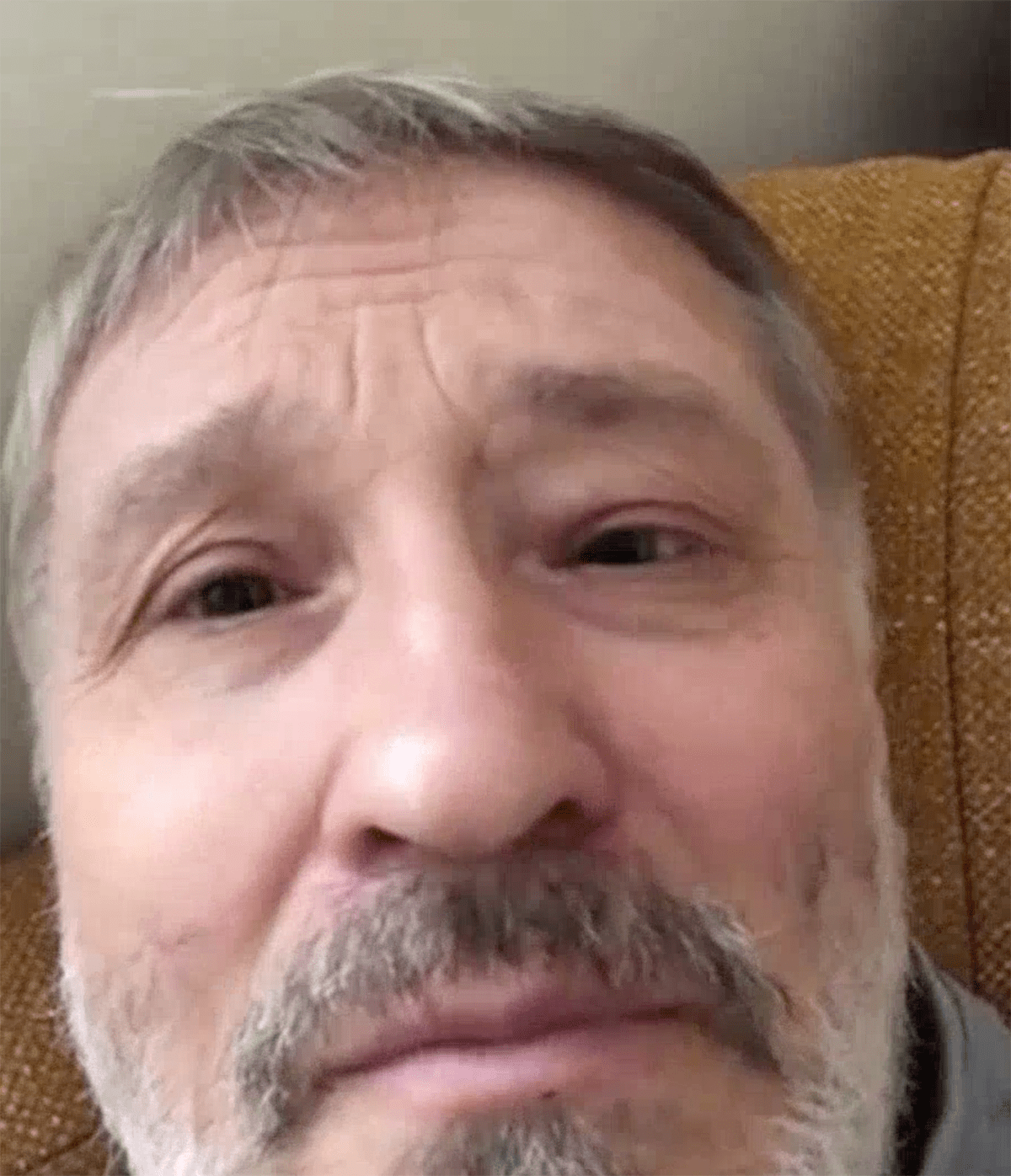
After discussing what happened this weekend, it is time to move to the one question that needs to be asked. Why? Why did he cheat? Why, as a grandmaster, did he take that phone and checked his game with an engine—the biggest sin in chess?
Somewhat reluctantly, Kasimi starts telling about the fact that he has cancer, "in the sensitive men's area," as he described it. It was diagnosed in 2003 and he is taking medication since. He also started to undergo chemotherapy, starting in 2018.
He notes that, because of it, he needs to use the toilet quite often, also during play. "My biggest fear is that the toilet is somewhere in another building."
As it happened, he completed his sixth chemotherapy two days before the start of the Strasbourg tournament. "I was completely crazy, I was out of my mind. I shouldn't have gone there but I was in the running to break 2700."
Kasimi emphasizes that he doesn't want to use his physical situation as an excuse: "I take full responsibility for myself. I cannot blame my weakness or my sickness or whatever. I did very dangerous things that may harm the entire chess world. I believe I did the most harmful thing you can do for chess."
I take full responsibility for myself. I cannot blame my weakness or my sickness or whatever. I did very dangerous things that may harm the entire chess world.
He is one of the people who believes chess cheating is widespread in over-the-board tournaments, saying: "Do you want to know how many times I played against a cheater? Uncountable times."
When pushed for further explanation, Kasimi drops the name of Sigmund Freud. "You continuously think about something, as a player, as a trainer, and as a coach. I spent so many sleepless nights thinking about this stuff. That night, when it happened in Strasbourg, I immediately understood all consequences."
So what about all those tournaments that he played against very weak opposition? That seemed deliberate, to keep raising his rating artificially?
"When the chemotherapy started, I understood that I was no longer able to keep my level," Kasimi says. "Two of my students were from Italy, so I played dozens of Italian tournaments and I also started to play senior tournaments. The opposition was 300, 350 points below my rating, so it's no surprise if I score 8.5/9 or 9/9.
"But these are very fragile things. When you start to mention the treatment… The FIDE Ethics Commission was aware I am part of what is called the first group of invalidity. In German, it's called Schwerbehinderter [severly disabled - PD]. You lost 100 percent of your working capacity. By the way, did you notice the photo was taken in the invalid toilet?"
Kasimi says he was "moving slowly" in Strasbourg, meaning he was using a stick—like in Valka, this weekend. "I need more time to reach the toilet than an average person, and it was on the opposite side of the playing hall."
These words turn out to be merely an introduction to some sort of an apology. He continues: "I shouldn't have gone there. I should have stopped the tournament when I felt very bad. Instead, I went to the toilet cabin."
I shouldn't have gone there. I should have stopped the tournament when I felt very bad. Instead, I went to the toilet cabin.
When the verdict of the FIDE Ethics Commission was published last year, it was revealed that Kasimi confessed to two earlier cases where he used his phone during a game (and one case of pre-arranging the result of a game).
"Yes, those were two cases against the same player, a very strong grandmaster," Kasimi says. "To name him publicly would be unfair from my side, even in my actual condition."
Again, the question is: why? Kasimi says it was related to something that happened a year before.
"This Czech player, he attacked me in the media. Actually, everything started online. He started to write that there was something suspicious about Rausis. But he started suspecting me for a very harmless case. It was when it just became forbidden to have a phone with you. It had to be switched off and put in your jacket or somewhere else.
"I was still using the old type of phone and during our game, I suddenly realized that my phone is in my trouser pocket. To remain honest, I removed the phone from my pocket and put it on the table, just showing that I'm clean. My opponent won the game and then wrote about it and analyzed it. And then he wrote about this telephone accident."
People started to speak about Rausis in online forums and suspect him, also because of his rating. He had passed the age of 55, and he had passed the Elo mark of 2600.
For the second time in his career, he broke into the world's top 100. He first did so in the early 1990s, when he was around the 80th place for a few rating periods. "Considering inflation, I think 2575 in the 1990s is like 2675 nowadays," he says.
"So, I face the man who accused me. I felt no sympathy for him. But now… we are speaking about the negative side of the human soul. Do you really need to check my soul?
But now… we are speaking about the negative side of the human soul. Do you really need to check my soul?
"OK, I will tell you the full story. My opponent is always well prepared and I came out of the opening close to lost. But I didn't want to lose this game, because my previous score with him was kind of catastrophic. I only drew once with him, and there were plenty of losses. And then I took the phone, it was an iPhone 4, with a chess program, and I went to the toilet."

Kasimi was living in the Czech Republic but flew to Riga after Strasbourg happened. Most of his family is in Latvia; he has two daughters and two grandsons from the youngest. He is divorced from his first wife WGM Olita Rause but they maintain a good relationship.
"She helped me. She provides alimentation and helped me to move around because she drives a car." He now receives a small pension from the Latvian government and has free transportation throughout the whole country.
The cheating, the ban, the photo, it all changed his life dramatically, to his own fault. "The first big issue was my family," says Kasimi. "Everyone was upset, but everyone was with me, this is the main thing."
For the second time in his life, he decided to change his name. He was born as Igor Kondylev, but changed that to Rausis when he was young, after his first wife. That name is now forever linked to the toilet photo.
He took the name of his current wife Ajgul Kasimova, who is in the Czech Republic now but cannot travel to Latvia currently due to the corona situation.
"Kasimi was easy. I thought it would be nice to use the name of my wife, whom I love very much. And then I decided also to change Igors because Igors was never correctly pronounced in the Latvian language."
Kasimi, who has a special interest in languages, explains that he decided to choose a name that ends on an 'i' and therefore doesn't need the grammatically mandatory 's' in most Latvian names. (Readers might know that Mikhail Tal's name in his country was Mikhails Tals.)
"I decided that Igors was wrong and Igors did wrong things in his life, so let's remove him."
I decided that Igors was wrong and Igors did wrong things in his life, so let's remove him.
And what about his family, did they ask the same question? Why? "My wife couldn't forgive me that I never spoke about it. 'Why did you cheat so many times and you never told me?' she asked. But you know, it's human. It was really very cruel."
And now? Asked about the future, Kasimi says he is in doubt whether he should try to play more chess during his ban, or after. "Once this ban ends, could you imagine the disaster? If I return to chess? First of all the rating, because the FIDE Ethics Commission decided that the rating remains unchanged—a very illogical decision, by the way. And they removed the grandmaster title, which was scored back in 1991 when the computer wasn't born yet. Well, the computer was born but not the chess program."
Instead, he is starting his re-education: he is studying again. "I am doing my best to improve my physical condition and restart my working career. I cannot call myself a doctor anymore after so many years of absence, but now I am doing my best to come back. First of all, I have to change my specialization to become a medical administrator. My Soviet diploma from the 1980s is recognized but I need to do a few exams. I already passed the exam for mastering the Latvian language on the highest level."
Kasimi is still coaching some children in Riga and has also picked up correspondence chess again. His return to the chess arena last Saturday showed one thing: after everything the happened, he still hasn't lost his love for the game.
See also:


